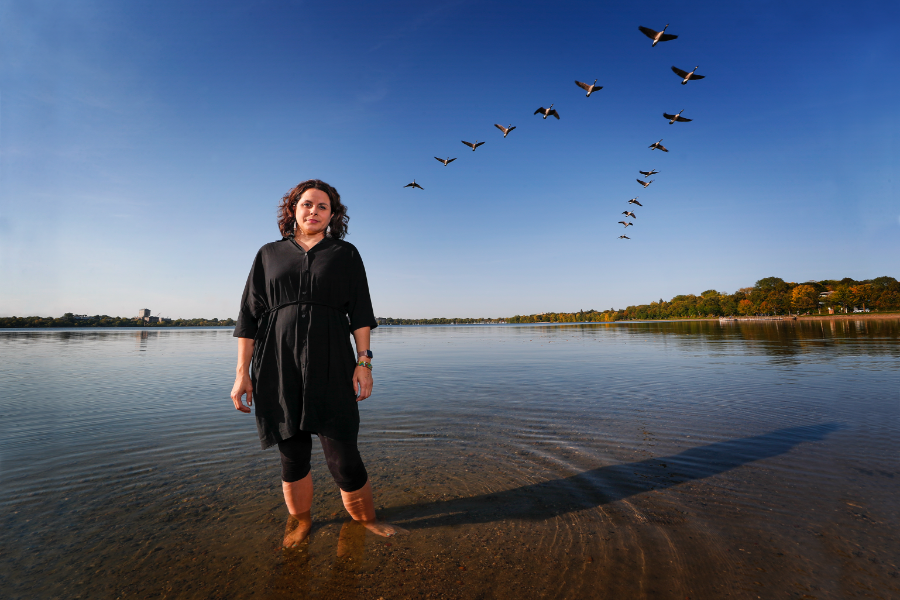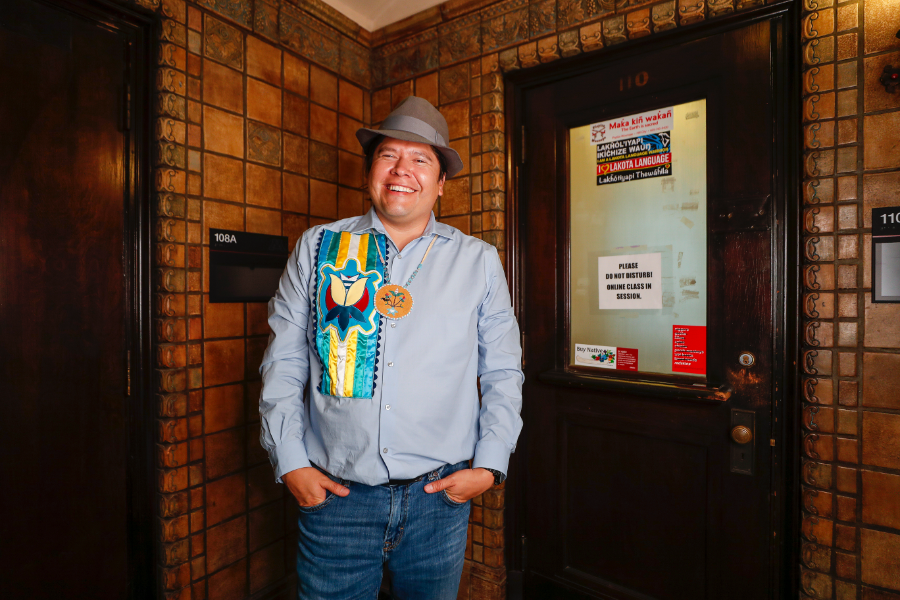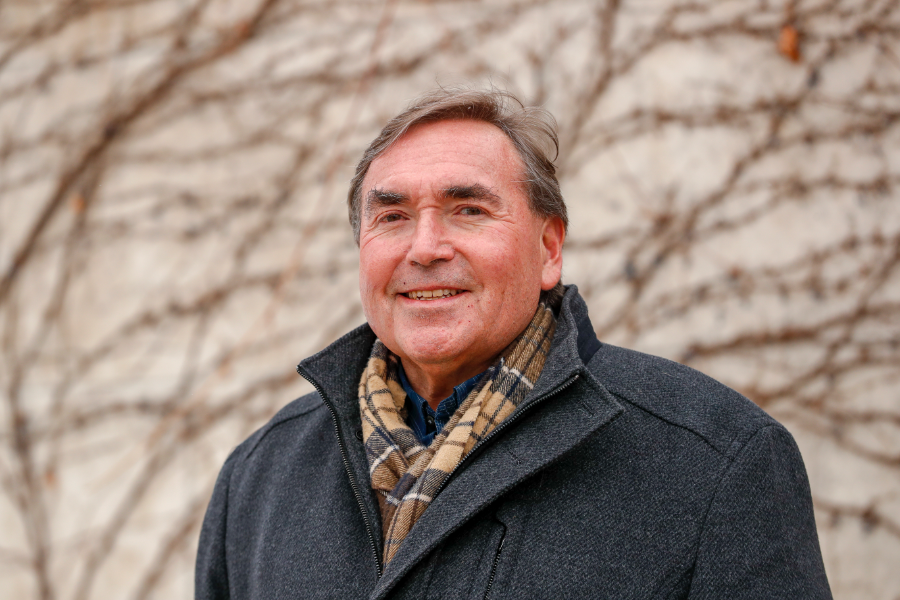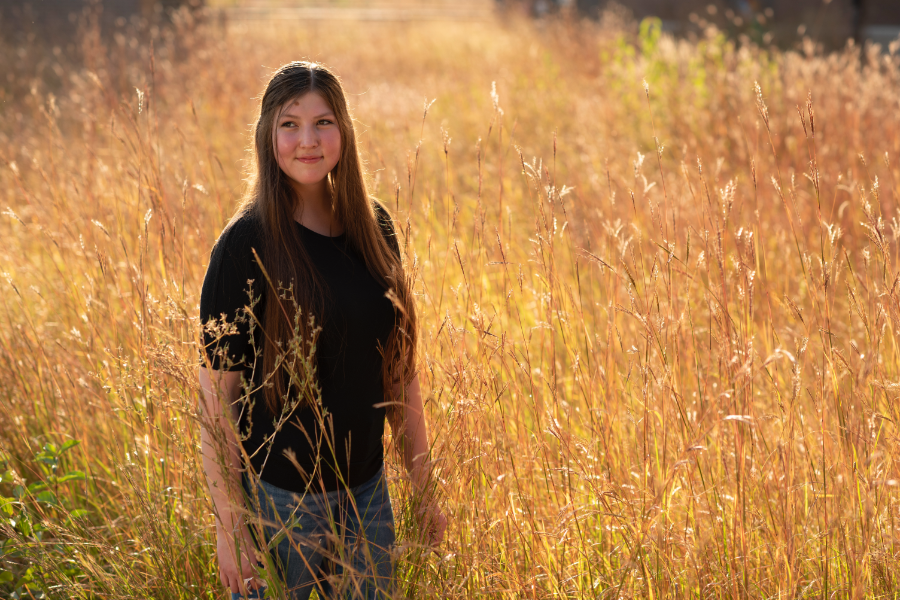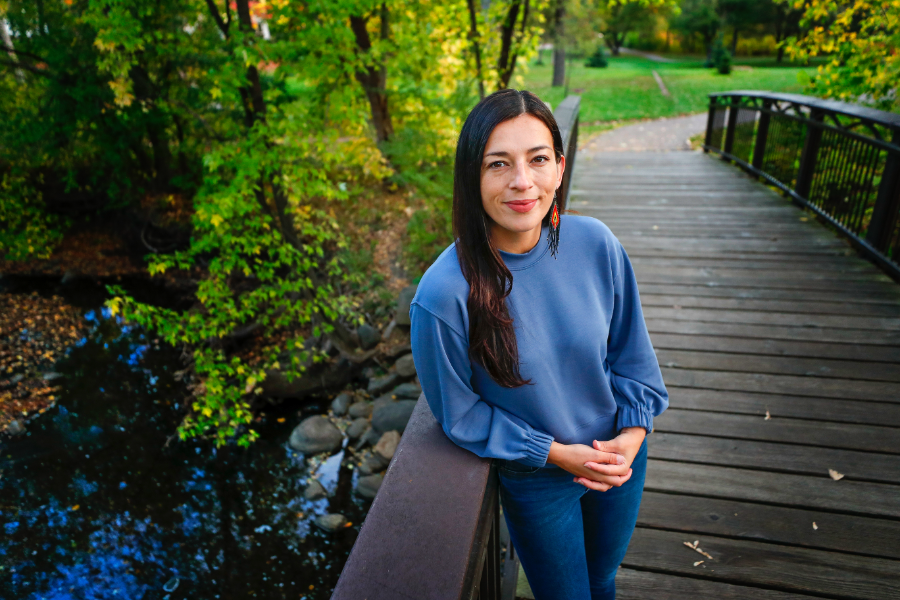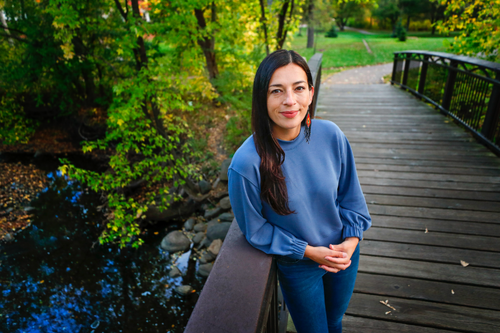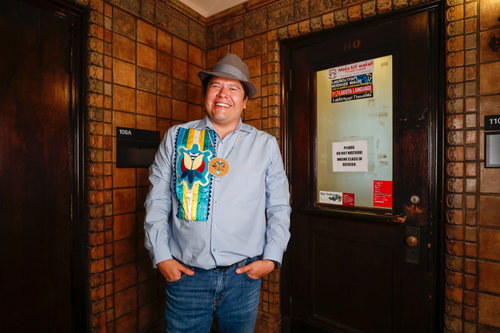Mary Owen: Dedicated to her ‘critically important work’
Physician and program director Mary Owen returned to the Duluth campus to help train Native American physicians and other healthcare workers to better serve Indigenous communities.
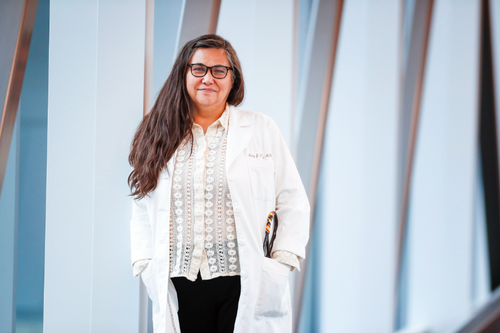
When she was a young adult living in her native Alaska, Mary Owen noticed what a lot of Native American and Indigenous citizens still see today—an absence of healthcare workers who looked like her.
She also became aware of the stark health disparities facing Indigenous people and a lack of Native American leadership in health programs. “I wanted to see more Natives in medicine when I went into clinics,” she says. “I wanted to see more representation by us.”
So she journeyed to the University of Minnesota Medical School in Duluth, and she’s been helping to bolster that representation ever since. Owen is now the director of the Center for American Indian and Minority Health (CAIMH) on the Duluth campus, an assistant professor, a physician for the Fond du Lac Band of Lake Superior Chippewa, and the current president of the Association of American Indian Physicians.
Attending medical school presented a gamut of challenges, from the constant competition with her peers to the “good old-fashioned racism” she occasionally encountered in the classroom. She credits the center she now directs for helping her make it through that journey.
“If it weren’t for this program I don’t know that I would have survived or found the reasons to keep going,” she says.
Becoming a physician isn’t the accomplishment she cherishes the most.
“I think the biggest sense of completion for me was going back to my community and working for my tribal clinic, more so than getting that degree; getting the degree was just part of the process for me,” she says. “It was going back to the clinic, seeing the families, and seeing young people who were obviously really happy to see a Native physician. I had one woman cry when she saw me enter the room because I was Native. … That was, to me, much more important.”
A call to return to Duluth
Owen spent 11 “incredibly satisfying” years in Juneau as a family physician at the Southeast Alaska Regional Health Consortium. But she became increasingly burned out from the grind of clinical care, as well as from seeing the impacts of trauma in her community over and over.
“I really felt I wasn’t making significant change by continuing to prescribe medications and talk to people for a half hour,” she says. “I was seeing people too frequently who hadn’t had significant change because I hadn’t addressed the things that were really a part of their health, like their housing, their lack of autonomy, their inability to get a good job, their self-esteem—all those things combined.”
That led to her return to Duluth and to the CAIMH, which since 1987 has served thousands of Native American students. The center has helped the University of Minnesota Medical School become #2 in the nation for training Native American physicians.
Her ongoing mission is to help educate not only Native health professionals, but all health professionals on how to better take care of Native American or Indigenous patients.
“I think it’s critically important work,” Owen says. “Not enough people are talking about how many people in our population are underserved. It’s not a small number. I’m interested in particular in the needs of my community, but those same needs are felt across African American communities, poverty-struck communities, and other communities of color. So many people are suffering and we’re not talking about it.
“We have a [rich civilian who just flew into space], while many people can’t even get health care or live in substandard conditions or are homeless. It’s about the bigger picture and about the right for people to live with dignity and autonomy—which of course impacts their health.”
- Categories:
- Health
- American Indian
- Culture and diversity
- Medical
